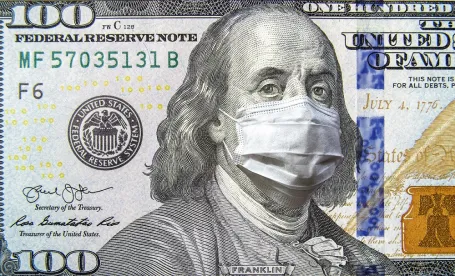The latest COVID-19 relief law, the American Rescue Plan Act of 2021 (ARPA), extends the payroll tax credit for emergency paid sick leave and expanded Family Medical Leave Act (FMLA) leave first enacted by the Families First Coronavirus Relief Act (FFCRA).
The FFCRA required many employers to offer these COVID-19-related leaves between April 1 and December 31, 2020. Beginning January 2021, FFCRA leave is optional, but employers that elect to provide FFCRA-based leave may take a payroll tax credit to cover wages paid. The December stimulus bill extended these tax credits through March 31, 2021; now, the ARPA extends the credits through September 30, 2021.
In addition, the ARPA both expands and limits employers’ eligibility for tax credits in the following material ways:
-
Additional Reasons Supporting Emergency Sick Leave. ARPA expands the reasons for which an employer may offer and receive a tax credit for emergency sick leave to include time missed because the employee (a) is either obtaining or recovering from adverse effects of a COVID-19 vaccine, or (b) is seeking or awaiting the results of a COVID-19 test when the employee has been exposed to COVID-19 or the employer has requested the test. The tax credit employers can receive for these new reasons are based on the employee’s regular rate of pay, up to a cap of $511 per day.
-
Paid Sick Leave “Reset.” ARPA provides that employers may receive a tax credit for an additional 10 days of emergency paid sick leave between April 1 and September 30, 2021. While the December stimulus bill simply allowed employers to claim a credit for paid leave to the extent the employee had not previously used their initial 10-day allotment, ARPA permits employers to claim a tax credit for an additional 10 days between April 1 and September 30, 2021.
-
Nondiscrimination. ARPA expressly provides that an employer that extends emergency sick and/or expanded FMLA to some employees—e.g. highly-compensated employees, full-time employees, or tenured employees—and not others, may not claim a tax credit for the leave wages paid.
-
Additional Reasons Supporting Expanded Family Medical Leave. Thus far, employers have been allowed to take tax credits for expanded FMLA only where the employee required leave in connection with the closing or unavailability of their child’s school or place of care. ARPA expands the bases for expanded FMLA to include all of the reasons that would support emergency sick leave. Thus, to the extent an employee has not exhausted their FMLA entitlement during the leave year—in whatever way the employer has established the leave year (e.g. calendar, rolling)—the employer may now claim a payroll tax credit for up to 12 weeks of leave for any or all of the following reasons:
-
The employee is subject to or is caring for an individual who is subject to a federal, state, or local quarantine or isolation order.
-
The employee has been advised by a health care provider to self-quarantine due to concerns related to COVID-19, or is caring for an individual who has been so advised.
-
The employee is caring for a son or daughter because the child’s school or place of care has closed or is unavailable due to COVID-19.
-
The employee is receiving or experiencing negative effects from the COVID-19 vaccine, or is awaiting the results of a COVID-19 test requested by the employer or necessitated because of close contact.
-
-
Increased Cap on Expanded FMLA Dollars. The FFCRA, as enacted, capped the amount of paid leave wages for which employers could claim a credit at $10,000 per employee. The ARPA raises this limit to $12,000.
While these tax credits make the decision to extend FFCRA more attractive, there are other considerations that may weigh for or against extending the leave. These considerations are likely to be employer-specific, given the nature of the work and workforce, the number of employees who are expected to have a qualifying need, and the risk that an employee will work when they may be exposing others, to avoid financial hardship.



 />i
/>i

